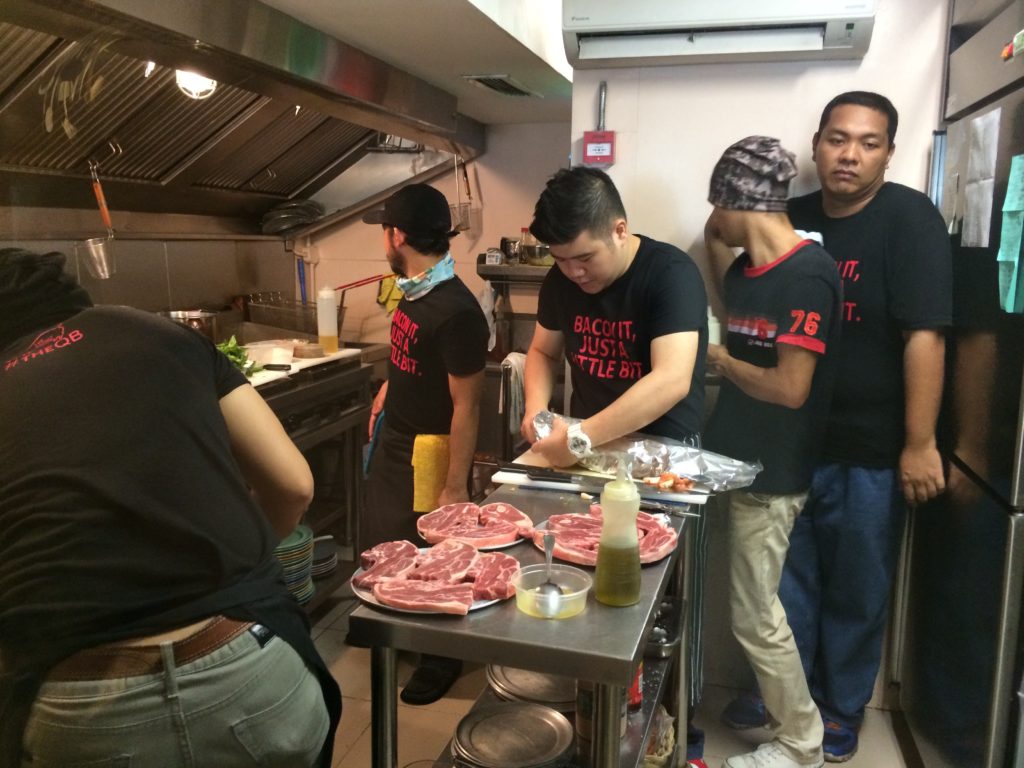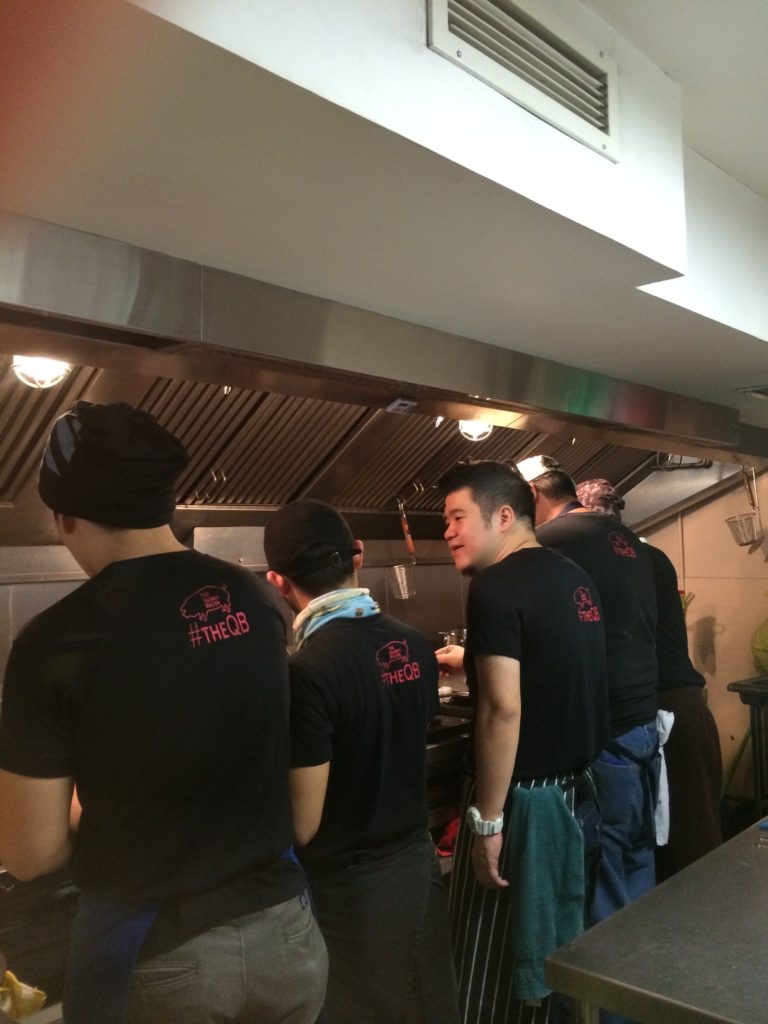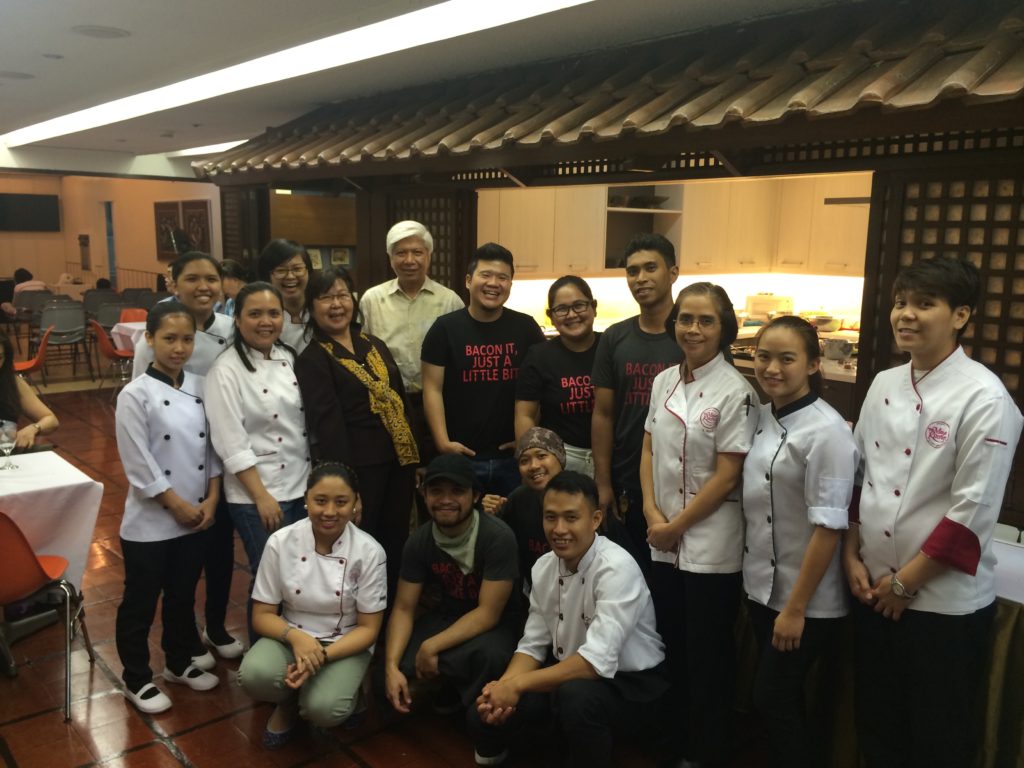Life in a professional kitchen is tough and it’s clearly not for everyone.
Just ask the chefs. We all love to talk about it. Heck, I even wrote a book about it. Chefs can work up to 18 hour days, most of it doing physical labor. We work in extreme conditions with an insane amount of pressure to produce perfect plates, mostly in kitchens too small, with too little ventilation for a public that has become all too knowledgeable with the advent of cheap travel and food television. We work in an environment where a curse word is uttered at least once in every sentence, a place with an explosive alchemy of aggression, pressure, camaraderie, speed, artistry, craftsmanship and economy.
Social media too is awash with essays, first person accounts, and open letters of experienced chefs to young chefs, clearly detailing how the professional kitchen is not for “sissies” and how one will have to “tough it out,” in order to survive and thrive. They all forcefully imply that somehow this “toughness” is the one true way to success. Success in the industry means surviving horrible conditions, off color jokes, and inappropriate contact and to speak against this is somehow weakness. Somewhere along the way, though, chefs have begun to wear this lifestyle as some sort of badge of honor or a plaque of “macho-ness,” as if cooking for a living is equated to becoming a Marine or a rockstar. It’s as if undergoing the “tough” challenges people constantly face in the kitchen harden us into heroic figures or celebrities to be revered. Knife cuts and oven burns are purple heart medals; defiant behavior, unsavory language and vulgarity are not just tolerated, but also celebrated.
Except craftsmanship is not the same as a power trip and aggression is not emotional or mental abuse. “The way things have always been done” does not mean a license to discriminate. “Joking around” is nowhere in the same vicinity as inappropriate sexual behavior. “Camaraderie” is not equal to inappropriate physical advances. “Tough” is not equal to toxic.
In just the past 3 years, at least four chefs have committed suicide and countless others suffer from depression. Over decades, thousands of servers and chefs have been harassed, touched inappropriately and worse, assaulted, and it took all these years for these stories to finally come out and have the people responsible actually held responsible. Why did it take all these years for us to start reading, thinking and talking about this? Why has this persisted for decades?
Maybe for far too long we saw these things as “how things have always been,” and not as the inappropriate and criminal acts that they are. We saw off color sexual jokes as “normal” language of the kitchen. We’ve dismissed butt grabbing and shoulder rubbing as “jokes” “friendliness” or “horseplay.” Maybe we’ve put all of them off as things we just have to “live through.”
Now, as we take a look at our industry when it is at its largest and most powerful, consider that maybe it is as toxic as it is tough. Abuse, whether, sexual, emotional or mental, is always about power. If chefs want to wear those badges of honor as “captains of the industry,” then it is incumbent upon us to safeguard power from abuse. It’s time to make things right. Yes we must keep our work places tough so that we can develop true culinary talent and produce efficiency, but we must protect our people from harm. That starts with providing a kitchen environment that is a safe haven for our people, a place where complaints and concerns are heard and not dismissed; a place where inappropriate behavior is punished and not tolerated and swept under the oven.
Somehow, we have to remember that our kitchens are our workshops and our chefs and servers are not minions but instead are fellow craftsmen, whose purpose is to feed and bring joy to the world.
Chefs have to do better.
We all can do better.


